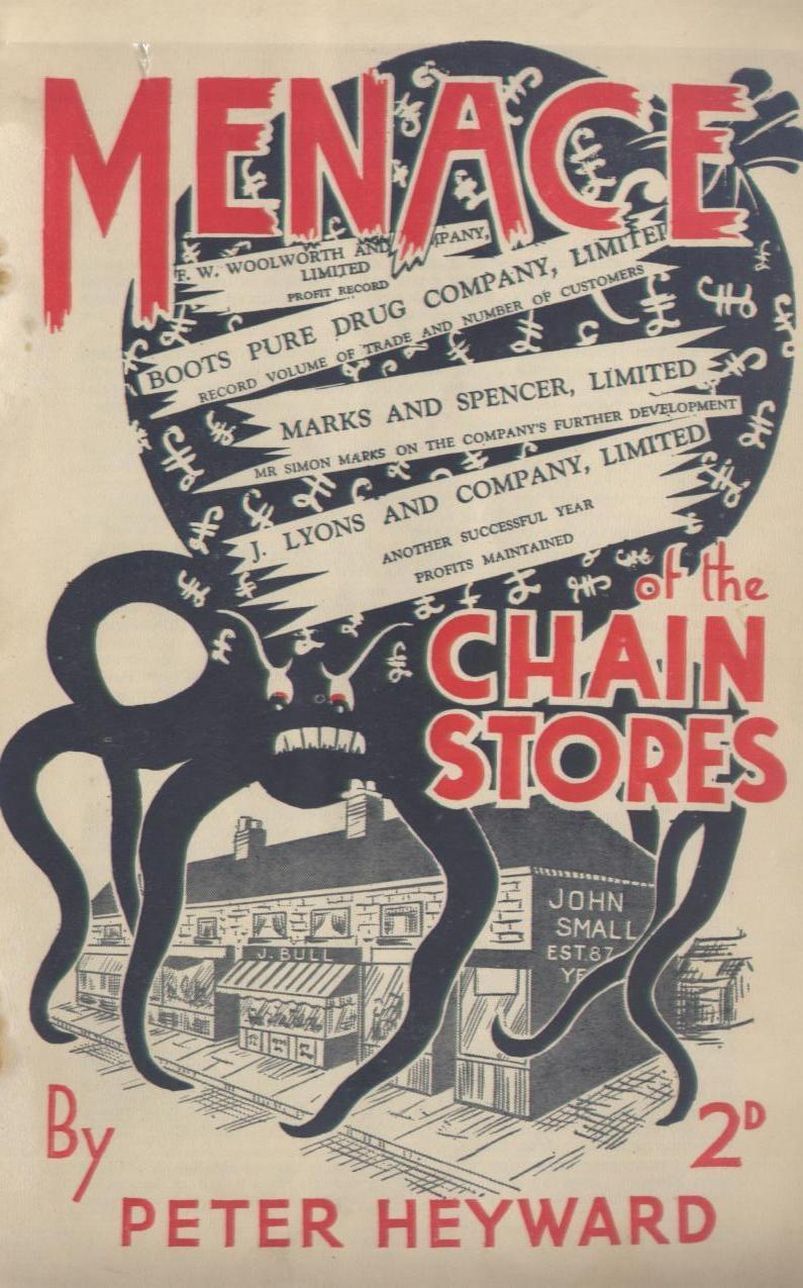
In recent months, some of the world’s largest corporations have come under fire from politicians, some have even been branded evil, but is this really the case?

It is not only politicians like Margaret Hodge, the British MP who branded Google evil, but self-styled social justice advocates and the usual suspects, mostly those of a left wing bent who are fond of spewing out factoids and statistics without taking the trouble to look behind them. The latest target for their ire is Walmart, currently the third largest corporation in the world, and also currently under fire in Washington DC
The thinking – or perhaps that should be the non-thinking – behind this blanket condemnation is that these companies are enormous, they make enormous profits, and they are bleeding us all dry. But is this the case?
This is not a new idea, it has a history going back to the 19th Century. When muckraking journalist Ida Tarbell published The History Of The Standard Oil Company in 1904, she may have had a point, but others did not.
In 1939, the British Union of Fascists published Menace Of The Chain Stores, a thinly veiled attack on international Jewish finance, or maybe not so thinly veiled. For reasons that need no explaining here, attacks on Jewish businesses and businessmen are taboo today, but the dead white guys (racism) and corporate “parasites” remain easy targets. There is though a massive fallacy here.

A scan of the front cover of a British Union of Fascists publication. Large corporations are represented as strangling the economy rather than serving it.
Huge corporations NEED to make huge profits because they have staff to pay as well as shareholders. Let us consider Google first. According to Margaret Hodge this evil company should pay the British Government more tax, which will then disappear into the black hole of the Treasury. Suppose it did. Suppose Google paid all its profits to the British Government, to the American Government and to other governments worldwide. What would that entail?
Recently, a young lady named Ann Makosinski made world headlines with a stunning new invention, a flashlight that works without batteries. She is one of the finalists in the Google Science in Action Award. This event would not have happened if the governments of the world had chewed into the company’s profits.
Check your Google toolbar and see all the features it offers. How were they developed? Computer programmers, software developers and similar highly talented people don’t work for nothing – notwithstanding the idealism of men like Philippe Bernard. Developing new products can be extremely expensive, and there are many dead ends, none more so than in the drug industry – so-called Big Pharma is another target of politicians and “radicals” alike.
Now let’s look at Walmart. Currently it is selling laptop computers from $298.00. Take a look at the astronomical cost of computing and related technologies in the past and ask yourself why in 1927 a half hour trans-Atlantic telephone call would have cost you £150.00 when today you think nothing of talking to people all over the world all day long for a tiny fraction of that. All this new technology requires investment. Ditto distribution, which is the prime function of Walmart.
This company also has a corporate giving department, something its detractors never mention, and it is far from alone. Even gaming companies do their share of this. Next time you’re checking out CardsChat.Com looking for the best bonuses and promotions, have a look too at the PokerStars charity events or check out Atlantis Casino Resort Spa and its corporate giving policy.
All this aside, the criticisms of Walmart and other large corporations miss one tiny but massively important fact, in a free or relatively free market, the consumer is sovereign. Walmart’s corporate power is an illusion. The classic illustration of this is what happened to Gerald Ratner. In 1991, he made a speech to the Institute of Directors in which he alluded to his company’s products as “crap”. The public took him at his word, and his firm all but collapsed. He was forced to resign, although he made a comeback of sorts. If consumers throughout America and the world were unhappy with Walmart they wouldn’t shop there, and the company would collapse in a matter of months, if not sooner. The same is true of all of these wicked corporations.
Does this mean everything in the capitalist garden is rosy. There is no question mark because the question is purely rhetorical. Clearly there are many things wrong, one is the constant meddling in businesses, strangling especially small ones with red tape. The biggest problem though is the financial system, which is not the capitalist system.
The bottom line is that almost all money originates with the banks, and without a constant flow of credit, the economy stagnates. Furthermore, as this money is created as a debt, there must be periodic shortages. Major Douglas pointed this out back in 1924. Unlike Walmart and other corporations, the banks have a monopoly – the monopoly of credit – and we are all subservient to it, including governments – with one big and two small exceptions. People who sincerely desire to reform the system to make life better for those at the bottom should ditch these ludicrous campaigns against wealth-creating corporations and redirect their efforts to take on the banks. Once we break the monopoly of credit, everything in the capitalist garden will truly be rosy, and we will be able to tackle even more important issues, like preserving this planet for future generations, and even the conquest of space.
[The above op-ed was published originally July 12, 2013.]
Back To Digital Journal Index